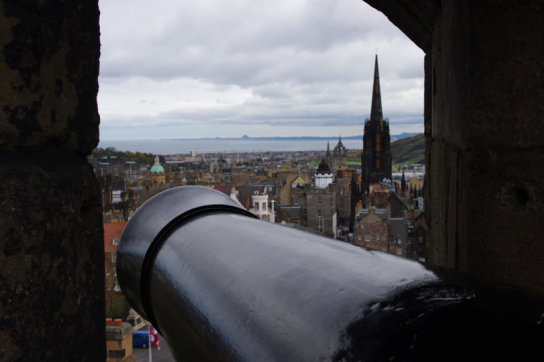By Amy Van Veen (The Cascade) – Email
Print Edition: October 31, 2012
You know that place with the kilts and the clouds and the inscrutable accents? That place that prides itself on having national treasures such as a giant stone slab or a poet whose poems, such as the Burns’ “Address to a Haggis,” they can quote in its entirety? That little country is not its own country.
Scotland is a part of the United Kingdom and despite the fact that it has autonomy over such matters as education, economy, health, environment and the legal system, as well as a clear national identity, Scotland still answers to London in matters of global significance.
Why, you may ask, is this important? Why is this suddenly a newsworthy—or rather opinion-worthy—topic of discussion now? It all comes down to the First Minister of Scotland, Alex Salmond, pushing for a referendum in which residents of Scotland can vote for or against Scotland’s independence.
Salmond, as leader of the Scottish National Party (SNP), was voted into the position of the First Minister in 2011 as part of a majority government at Holyrood. Holyrood is the heart and soul of the Scottish government, at the base of Arthur’s Seat (Edinburgh’s main “mountain” peak) and across the street from the Palace of Holyroodhouse (the royal family’s Scottish residence).
For Canadians, this whole situation seems eerily familiar and the BBC is quite aware of the similarities between Scotland’s desire for independence and that of Québec. However, the UK sees Canada’s dealings with Québec as a model of what not to do.
BBC Scotland’s political reporter Andrew Black sums it up best, “All the parties—unionist and pro-independence—are keen to avoid the situation which has unfolded in the Canadian province of Québec, where debate over multiple independence referenda over the years has been dubbed the ‘neverendum.’”
The SNP has dated the referendum to be in the fall of 2014 to allow for enough time to garner support. Salmond wants to avoid the “neverendum” situation in Canada by having just one major referendum. If the answer for Scottish residents is yes to “Do you agree that Scotland should be an independent country?” then the path to independence will begin – but it would be a long path since the ties between Scotland and England are much more complicated than a simple split would allow.
What about, for example, the nuclear weapons Britain currently has sitting in the north? Or the fiscal autonomy Scotland would have over its natural resources? How would this affect the pound or—less likely—the euro, if the Scottish government would choose to jump on that sinking ship?
The SNP, though, is practicing a great amount of foresight. They recognize the fact that a referendum right now would be hasty and lead to a quick “no” from the majority of the Scottish population. They also recognize who would be affected by this vote: the youths.
Against the wishes of the UK ministers, the SNP is demanding that the age to vote on this referendum be lowered to include those that will be 16 in 2014, and 18 in 2016 when Scottish independence would be fully realized.
If, however, the answer is no, the SNP will lay the independence issue aside in favour of other autonomy measures.
What I find most interesting about this entire process is the echo of Canada and the Québecois. Québec separatism is akin to the boy who cried wolf. Canadians see the stories in the paper and are interested for half a second until they realize it’s the same old thing rehashed in yet another political year, but the arguments are similar to Scotland. A desire to stand autonomous on a global stage without hand-holding the nation that brought it under its wings centuries ago, and a distinct cultural and political identity make Scotland and Québec partners in the same crusade – but one seems to have it a little more under control than the other.
While Canada acts as the troubled nephew and cautionary tale to the UK, Scotland adjusts their national kilt, grabs a beer and puts one foot in front of the other toward a potentially successful independence referendum.



